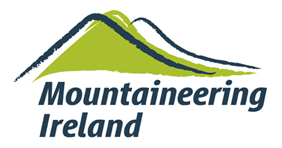Why do I have to join a mountaineering council?
Candidates registering for the following Mountain Training qualifications are required to be a member of a mountaineering council:
- Hill and Moorland Leader
- Mountain Leader
- Climbing Wall Instructor
- Rock Climbing Instructor
- Foundation Coach
- Development Coach
You have to be a member in order to register for these qualifications because the mountaineering councils work hard to protect the interests of walkers and climbers which then enables you to do your thing as a qualified leader.
The
British Mountaineering Council,
Mountaineering Scotland and
Mountaineering Ireland are the representative bodies for hill walkers, climbers and mountaineers in England and Wales, Scotland and Ireland respectively. They lobby and advise government on a range of important issues such as access, risk and responsibility, developments affecting the mountain landscape and changes in legislation.
Mountain Training and the mountaineering councils work closely together in a number of areas concerned with mountaineering good practice for individuals, leaders and groups. On a broad level, Mountain Training administers formal training schemes and the mountaineering councils dispense advice and expertise in more informal areas of activity such as student clubs, mountaineering clubs and youth participation.



In many other sports, the representative body and the awarding body (for training and coaching) are one and the same, which is the case for mountain training on the island of Ireland, whereas the UK mountaineering councils and Mountain Training, although closely linked, are separate entities. It should be noted that the mountaineering councils only receive a fee at the point of registration, relying on the strength of their work and commitment to all walkers, climbers and mountaineers to retain their members.
Access to the hills, crags and mountains
Maintaining access to the wild places of Britain and Ireland is vital to hill walkers, climbers and mountaineers in order for them to pursue their interests. The mountaineering councils employ access and conservation staff alongside an extensive network of volunteers. These teams work closely with relevant authorities and land managers in negotiating, securing and maintaining access to our hills, mountains and crags. Those working in the outdoors directly benefit from this work.
Insurance for candidates
Registration for a Mountain Training scheme does not include any insurance cover, but mountaineering council members receive third party liability cover in respect of claims for negligence incurred when undertaking hill walking, climbing, mountaineering and some related activities. This insurance covers candidates during Mountain Training courses and most importantly whilst gaining relevant experience during the consolidation period between training and assessment, when a candidate may be leading, instructing or coaching others. The insurance does not extend to candidates trading under a company name.
Equipment advice and inspection
High standards of safety are paramount in all aspects of work in the outdoors. The mountaineering councils examine gear failures and take an important role within the UIAA in setting standards for climbing and mountaineering equipment. The mountaineering councils also dispense advice and guidance, and produce a wide range of safety and technical material including posters, videos, training, reports, leaflets booklets, lectures and seminars.
Information
Whatever you want to know about hill walking, climbing or mountaineering, the mountaineering councils can help. Their free publications and extensive website information may be used to enhance the delivery of a course. Extensive online databases on equipment, access, climbing walls, huts, clubs and much more provide essential information. The mountaineering councils take an overview of developments in hill walking, climbing and mountaineering, as it is vital that new people coming into the sport are made aware of ethics, good practice and the sensitive ecosystems in much of our uplands.
Working Together
The mountaineering councils have a democratic structure and work on behalf of all hill walkers, climbers and mountaineers. There are regular area meetings that every member can attend – details can be found on their websites and in their membership magazines.
As well as knowing what the mountaineering councils do for you, it’s just as important to know what you can do for the mountaineering councils and all who share our hills and crags. The mountaineering councils rely almost entirely on volunteers to suggest, guide and implement their important work - who better to be involved in our representative bodies than those who both work and play in the mountains?
Sitting in meetings is not everyone’s cup of tea, but there many other ways in which you can help, such as volunteering on the mountaineering council’s annual student safety seminars, and so passing on your knowledge to the next generation.
Your membership fee is vital to the continuation of our sport in its present form – most of us think that’s a small price to pay.